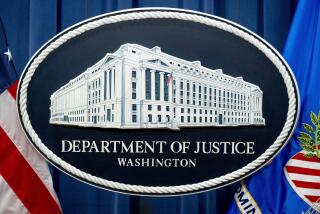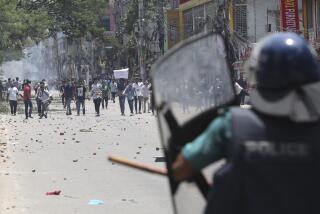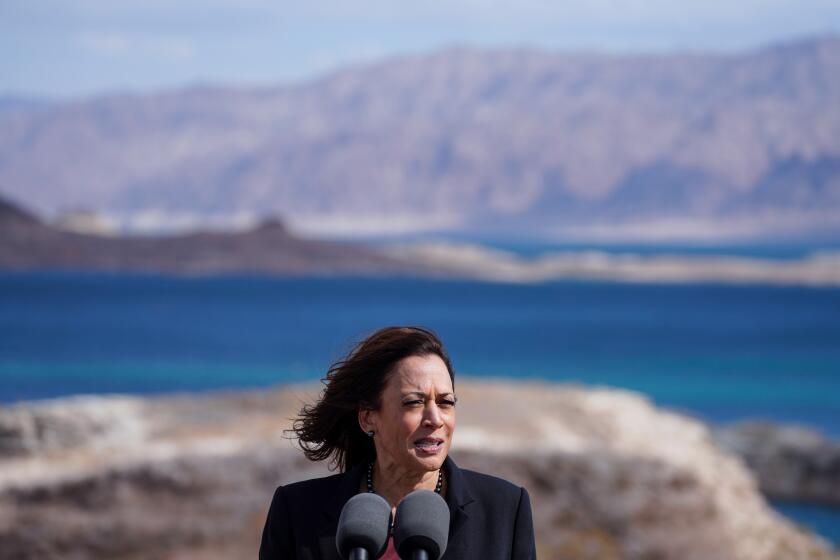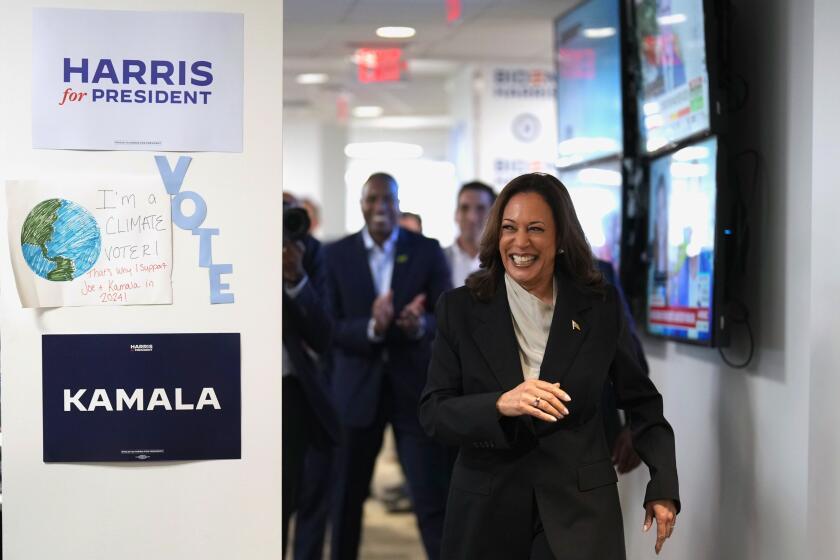Tiny Bahrain’s Emir Decides It’s Better to Be King
When does an emir get to become a king? When he says so.
That may sound like some obscure monarchy joke, but it was in fact a historic moment Thursday in the tiny Persian Gulf emirate of Bahrain, where, with a stroke of his pen, Sheik Hamed ibn Isa Khalifa anointed himself king.
Of course, a king can’t be king without a kingdom, so map makers will have to get busy and rename the sliver of oil-producing sand “the Kingdom of Bahrain”--just like its big cousin next door, the Kingdom of Saudi Arabia.
But unlike Saudi Arabia, where the royal family rules with a heavy hand, this kingdom will incorporate elements of democracy, making it a standout in a region where, generally, rulers rule as they like.
In announcing his promotion, the fledgling king also approved plans to create a constitutional monarchy. He called for the first parliamentary elections in more than two decades to be held in October and municipal elections in May.
“We are keen to resume democratic life as soon as possible for the glory of Bahrain, its prosperity and development,” his royal highness said in a nationally televised address Thursday. “Men and women will be allowed to vote and run for office.”
A few years ago, this country of just 650,000 people was in the grip of a violent uprising. Bombs rocked the capital, Manama, destroying banks, offices and hotels, and the jails were filled with political prisoners.
In 1974, the new king’s father, Sheik Isa ibn Salman Khalifa, had imposed an emergency law under which anyone could be arrested and held for up to three years without being charged. Over the years, thousands of people were arrested, locked up or exiled. He also suspended the constitution and dissolved parliament.
In 1999, the emir died and his son took over.
Hamed shook the nation to the core. He opened the jails and released all political prisoners. He welcomed home all exiles. He suspended the dreaded emergency law. His idea was to begin to combat extremism by respecting human rights and allowing room for political opposition.
His plans, which were overwhelmingly approved in a national referendum more than a year ago, called for creating a bicameral legislature with an elected lower house and an appointed upper house.
Amid all of this pro-democracy hype, however, there was no mention of the emir’s pending kingship. In substance, it makes little difference, because the monarchy is hereditary, and Hamed’s son, the crown prince, will succeed his father, whether as king or emir. Nonetheless, people were a bit surprised by Thursday’s announcement.
“Whether he is a king or a prince, it is no big change,” said Mundhir Khoor, an officer in the Bahrain Human Rights Society. “It is just a big fuss, a big bang, that is all. It is a big noise. It is not important.”
The king did make it clear that despite his nod toward modernity, he isn’t turning complete control over to an elected parliament. The original plans called for only the lower elected house to have legislative power, but the king announced Thursday that his handpicked upper house will also be involved in passing legislation.
“This is a strange change in attitude,” Khoor said.
Although it is a relatively poor relation among the oil-rich Persian Gulf countries, Bahrain hosts the U.S. Navy’s 5th Fleet, and so its stability is of strategic importance to the United States. And, like its neighbors, it still has serious economic problems to confront, including high unemployment.
And the government will still have to deal with tensions between the majority Shiite Muslim community and the minority ruling Sunnis. So far, however, leaders of both branches say the new, open approach has helped keep the peace.
More to Read
Sign up for Essential California
The most important California stories and recommendations in your inbox every morning.
You may occasionally receive promotional content from the Los Angeles Times.






